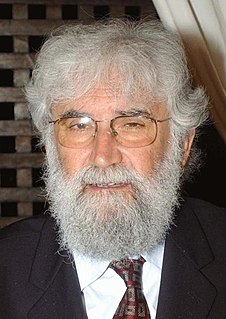A Quote by Robert Sirico
[There is] a strange split in thinking common to those on the religious left, who are quick to denounce the profit motive and commercialism. Yet, they seem to think that the key to happiness is giving people more stuff - by enlisting the coercive power of government. This perverse way of thinking holds that 'social justice' demands that we take money from those who have earned it and give it to those who have less of it. That's not social justice; that's materialism.
Quote Topics
Commercialism
Common
Demands
Denounce
Earned
Enlisting
Give
Giving
Government
Happiness
Holds
Justice
Key
Key To Happiness
Left
Less
Materialism
Money
More
Motive
People
Perverse
Power
Profit
Profit Motive
Quick
Religious
Seem
Social
Social Justice
Split
Strange
Stuff
Take
Think
Thinking
Those
Way
Way Of Thinking
Related Quotes
Money is a great way to get happiness. Right? Lots of wonderful things you can do with money. The question is, are we really optimizing on that? So, if you think about getting lattes and getting cable. Which one of those is actually giving you a greater happiness, and if you have to cut on one of those, which one would you cut? So, I think thinking in terms of concrete terms would help us a great deal.
It is my feeling that as we grow older we should become not less radical but more so. I do not, of course, mean this in any political-party sense, but rather in a willingness to struggle for those things in which we passionately believe. Social activism and the struggle for social justice are often thought of as the natural activities of the young but not of the middle-aged or the elderly. In fact, I don't think this was ever true.
My political tradition is on the left, but I think that more modern leftists, they sometimes get stuck with this vision of large government and social benefits and everything and that's against what is my position, because I think that the ultimate vision of Marx, Engels, and those people was to eliminate government entities and to give as much power to the people. And in modern standing that means direct democracy, that means all the power to the communities, it means gradually eliminating all government oppression on the society. And 100 years ago, leftists' major allies were labor unions.
The question is not what anybody deserves. The question is who is to take on the God-like role of deciding what everybody else deserves. You can talk about 'social justice' all you want. But what death taxes boil down to is letting politicians take money from widows and orphans to pay for goodies that they will hand out to others, in order to buy votes to get re-elected. That is not social justice or any other kind of justice.
In its pursuit of justice for a segment of society, in disregard of the consequences for society as a whole, what is called 'social justice' might more accurately be called anti-social justice, since what consistently gets ignored or dismissed are precisely the costs to society. Such a conception of justice seeks to correct, not only biased or discriminatory acts by individuals or by social institutions, but unmerited disadvantages in general, from whatever source they may arise.
EDM has trained a new generation of listeners' ears to accept a much broader range of what equals a song. EDM has become top 40 stuff: those sounds, those styles, those ways of thinking about song structure - even thinking that vocals aren't necessarily the central element - those ideas have made their way into popular culture.
Today social justice represents one of the most serious challenges to the conscience of the world. The abyss between those who are within the world 'order' and those who are excluded is widening day by day. The use of leading-edge technologies has made it possible to accumulate wealth in a way that is fantastic but perverse because it is unjustly distributed. Twenty-percent of humankind control eighty percent of all means of life. That fact creates a dangerous imbalance in the movement of history.
[Science] dissipates errors born of ignorance about our true relations with nature, errors the more damaging in that the social order should rest only on those relations. TRUTH! JUSTICE! Those are the immutable laws. Let us banish the dangerous maxim that it is sometimes useful to depart from them and to deceive or enslave mankind to assure its happiness.
Justice is a judgement that is both fair and forgiving. Justice is not done until everyone is satisfied, even those who offend us and must be punished by us. You can see, by what we have done with these two boys, that justice is not only the way we punish those who do wrong. It is also the way we try to save them.
The ghostly presence of virtual particles defies rational common sense and is nonintuitive for those unacquainted with physics. Religious belief in God, and Christian belief that God became Man around two thousand years ago, may seem strange to common-sense thinking. But when the most elementary physical things behave in this way, we should be prepared to accept that the deepest aspects of our existence go beyond our common-sense intuitions.




































